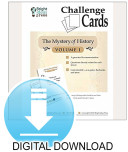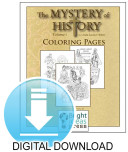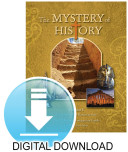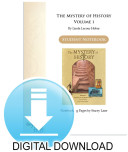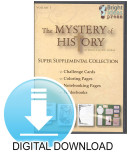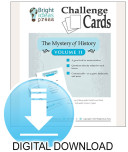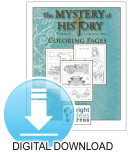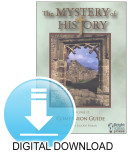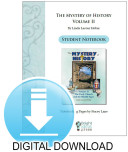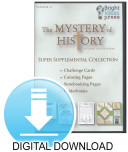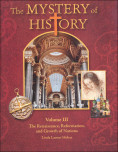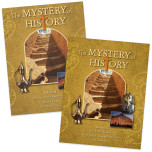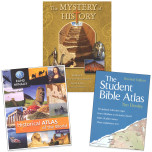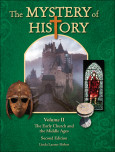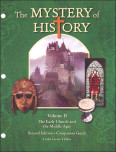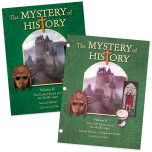We use cookies to make your experience better. To comply with the new e-Privacy directive, we need to ask for your consent to set the cookies. Learn more.
This conversationally written, chronological, 4-year-cycle program is specifically designed so that multiple ages can simultaneously study God's sovereignty throughout history, from Creation to the 21st century. History is His story, after all. As a Christ-centered study written by a home school mom, each reader volume in the series chronicles key individuals and events that demonstrate the hand of divine providence through the highs and lows of human history. Tough elements are not ignored, and key church history is included. Trace the hand of God through historical events. Volume 1 focuses on Ancient History (ending with the life and resurrection of Jesus); Volume 2 Middle Ages; Volume 3 Renaissance, Reformation & Growth of Nations; and Volume 4 studies Revolutions to Rising Times (1708 - 2010). Each volume provides from 28 to 36 weekly lessons. Reading level will advance in difficulty as learners work through the 4-volume cycle (See individual descriptions for details). This program adapts easily to a classical, Charlotte Mason, or more traditional approach.
The essential hub of the course is the Reader Text, which includes a unique-user PDF download code of the volume-specific Companion Guide. This course achieves a nice balance of structure, routine, and consistent learning versus variety, choice, and independent customization. The 3 weekly required lessons found in the Reader are framed among pleasant layout and appealing full-color photographs. Read the narratives aloud or have older students read independently. The remaining necessary components come from the Companion Guide: teaching information and directions, the scope and sequence, the pretest, quarterly worksheets, tests and quizzes, mapwork, timeline (called the Wall of Fame), and memory cards (key details of each key historical element learned that week). For mapwork assistance, the publishers highly recommend the customizable, digital WonderMaps (item 082644) or these 2 book-based atlases: The Student Bible Atlas (item 00167 particularly for Volume 1) or Rand McNally's Historical Atlas of the World (item 00733). Thus far, the amount of work I've described might suffice for students, particularly in grades 1-6. But then you'd miss out on all the included items which allow you to personalize to your specific goals, family situation, students—and you!
As a convenience, printed Companion Guides are available on our website as separate purchases for Volumes 1-3. A digital version is available for Volume 4. Whether using the digital or printed, the additional suggestions and optional resources provide a wealth of options for different ages. The 500+ pages specifically tailored to each volume include the required course items, as well as hands-on activities for younger, middle, and older students (with any needed instructions or templates and photos); field trip suggestions; semester tests; research and writing exercises; a detailed supplementary Book and Resource list (general books, Bible, read-alouds, references, and creation science museums/zoos); and Lesson Resources (specific books, films, and Bible chapters that correlate to lessons in the Student Reader).
Optional resources are now available as digital downloads. These include Challenge Cards, Notebooking Pages, Folderbooks, Super Supplemental Set, and Cookbook. The Challenge Cards contain over 300 question-and-answer cards and a dozen game ideas. Coloring Pages include 36 collage-style coloring pages. Notebooking Pages include ruled & unruled pages for hand-written narration, information pages, and fillable PDF pages for computer use. Folderbooks (a.k.a. lapbook) can be downloaded as well. Providing your own manilla folder, and using the included items, students create folders representing content from the lessons. The Super Supplemental Set includes all 4 items as downloads in one purchase. The Volume 2 downloadable Cookbook includes historical recipes from the Early Church and the Middle Ages. Audio books of each Volume are available for purchase at the author's web site. Make the road to understanding His Story throughout time a delight with this history series! ~ Ruth
